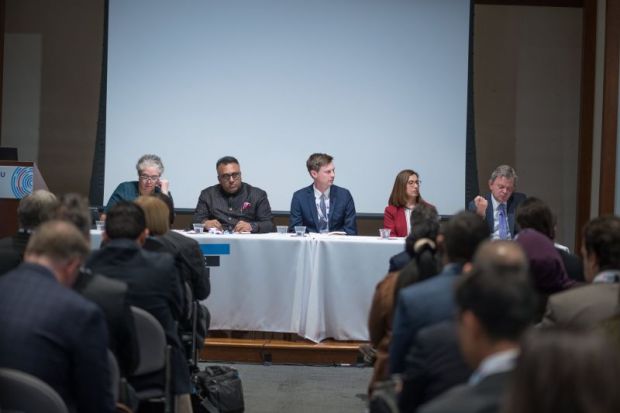Universities need to persuade funders to “broaden their horizons” to address high levels of precarity among early career researchers, according to Sir Anton Muscatelli.
The principal of the University of Glasgow told Times Higher Education’s World Academic Summit, held at New York University, that in order to improve diversity among academics just embarking on their careers, action needed to be taken on insecure contracts.
“If you come from a wealthy background there’s not a problem. You can smooth your way through it. But if you come from a deprived background, it is a massive barrier,” Sir Anton said.
At Glasgow, research teams that obtain more external funding are prioritised for being moved on to open-ended contracts.
But, Sir Anton added, funding bodies also have to recognise the role they can play. “We are putting more pressure on public funding agencies…it is those that have very short horizons,” he said.
“There is no way any university could guarantee a completely open-ended contract without having funding that is more than 12 or 24 months, it just can’t work. We would have to paradoxically shrink the size of our research base which would not be helpful either.
“What we have to do is talk to funders and persuade them to think along much longer horizons. I do think there is a conflict on this issue.”
The economist, and former chair of the UK’s Russell Group of research-intensive universities, said his institution was also looking at recognising different types of success in higher education, to overcome the view that academics must “publish or perish”.
“We look at leadership, teaching, esteem and the impact of research. Even for promotion to full professor, as long as research outputs reach a certain level, you can get there through other dimensions. I think we have become much more inclusive on this,” Sir Anton said.
Promotion prospects are now judged on collegiality, and what the person is doing to advance the careers of others as well as their own, according to Sir Anton.
“I’m not saying it is straightforward; there are huge issues here. I do think we are making progress and trying to make it a fairer system,” he said.
Sir Anton said universities also needed to stop thinking that those who enter postgraduate programmes are all going to become academics, as the “vast majority” do not.
Therefore, the development of graduate students and early career researchers should focus more on equipping them with the skills needed to progress into many different potential careers, he argued.
Register to continue
Why register?
- Registration is free and only takes a moment
- Once registered, you can read 3 articles a month
- Sign up for our newsletter
Subscribe
Or subscribe for unlimited access to:
- Unlimited access to news, views, insights & reviews
- Digital editions
- Digital access to THE’s university and college rankings analysis
Already registered or a current subscriber? Login








